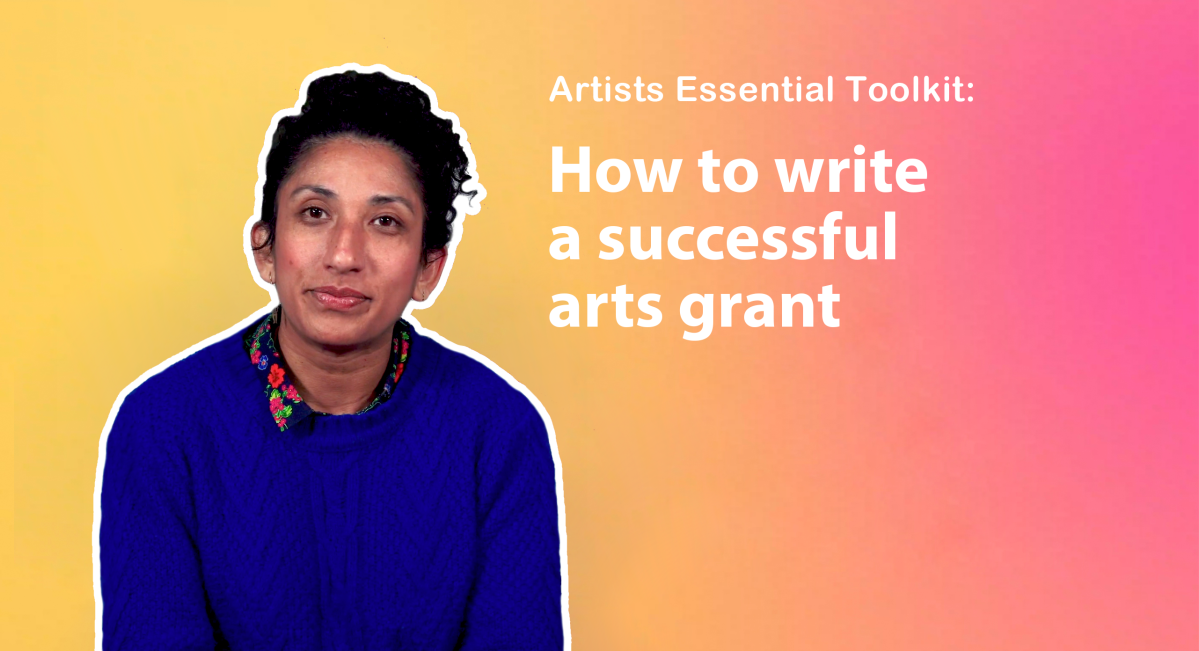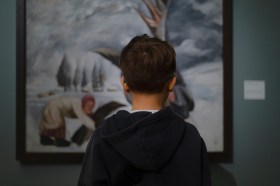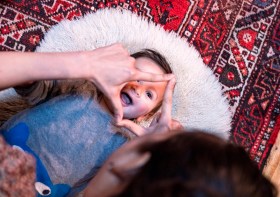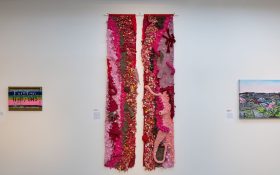From studying eligibility guidelines to tips about keeping your language clear and concise, the latest video in our Artists Essential Toolkit series explores the ins and outs of grant-writing.
Presented by Vyshnavee Wijekumar, this video acknowledges that language and literacy issues can impact on some people’s ability to write a grant application and offers some advice to help navigate those issues. We also discuss the importance of budgets and breaks down the meaning of some of the terms commonly used in grant applications, in order to make them less confusing.
Artists Essentials Toolkit is a co-production of ArtsHub and Creative Victoria.
Presented by Vyshnavee Wijekumar.
Music: Eternally Alone by Poppongene, released by Our Golden Friend.
This episode contains footage from:
Old Chinese Proverb 1946
Detroit: City on the move 1965
Century 21 1964 – Office Courtesy 1952
VIDEO TRANSCRIPT
As an artist, it can often be costly to get a project off the ground.
Luckily, there are a number of arts grants out there, so let’s get into details of how to successfully apply for a grant.
Writing an application for a grant can be a time-consuming project, so before you start – make sure you and your project are eligible. I know it sounds obvious, but grants can sometimes only be offered to people who live in certain municipalities, or to people in a certain age bracket or for a specific type of project, so read the criteria thoroughly.
You don’t want to waste your time creating a fantastic application that doesn’t qualify.
If you are eligible, have a look at the projects the grant has previously been awarded to. And don’t forget to check the closing date of the grant and the documentation they require so you know how much time you have to prepare an impressive application.
As you begin your application, remember that the assessment panel has to wade through a whole pile of applications. So make sure you get straight to the point. Keep your language clear and concise. Stick to the word counts and make sure you address all the criteria laid out in the grant.
There can be quite a variety of grant formats; some can be laid out to be super easy to fill in while others might not be quite as templated.
Make things easy for the assessment panel by clearly labelling your supporting material, your images, videos, whatever you’re supplying to supplement your application.
Remember, grants are not a one-size-fits-all situation. There can be quite a variety of requirements and audiences when it comes to applying so try tailor your application to the audience.
Contact grant administrators with any questions you have and always take advantage of offers to ‘call and discuss’ your grant.
A quick chat can ensure your proposal is on track and begins the relationship with the funding agency.
If you aren’t able to apply for a grant because you have language or literacy difficulties, there are other methods you can use.
Consider doing a video pitch. Or contact organisations like Arts Access Victoria for help applying. Check out our video on accessibility for artists and audiences for more ideas.
Of course it can be challenging for culturally and linguistically diverse people to apply for grants and the language used in applications can use jargon, so consider speaking directly to the grant administrators about what they really mean.
You may look at translation and interpreting services too, to help make the message clearer in your own language.
If you’re going to apply for a grant, you need to have a clear game plan in mind for your project so you can present your idea and application with conviction.
First up, write an overview of your project, describe what it will be. Then outline how it will be undertaken, how you will create it.
Create a budget, a timeline for each stage of the project, and define what a successful outcome will look like. Think about who might benefit from your project, and what difference it might make to the community.
If you have any evidence of how your project may benefit people, include this in your application.
Keep a file of all your grant applications for easy reference; a lot of information can be recycled, like your project description, but it is important to always tweak applications to really hit the funding criteria.
Creating a bank of useful words or phrases you use to describe your project can also be a time saver, as well as having a file with typical documents and attachments to include with your applications such company registrations, ABN and insurance documentation.
We mentioned a budget earlier as part of your project plan. But they’re one of the most vital parts of a grant application.
So, how much is your project going to cost? Do a realistic breakdown of how much you need to produce your work. If it’s a theatre production, consider the cost of actors and their time, costumes, publicity, venue hire, insurance, technology, admin, all those things that you would normally budget for.
Research the costs, gather quotes and outline them in your application. Don’t inflate them – be honest and keep documentation of any quotes you’ve received for services.
It’s important to really show that there is a need for your work to be out there in the world.
One great way to establish this is by getting letters of support. These can really lend some weight to your application for a grant. You can ask for them from people you may have already worked with, or people of expertise whose industries would particularly benefit from your work being created. Reach out to these people and ask them if they’ll be a referee for your project.
There can be a lot of terms around grants that can be a bit confusing. Here are the main ones to familiarise yourself with, especially if you’re applying for a grant for the first time:
Accountability report. Also called an Expenditure statement or Acquittal report. It’s an outline of how much was spent on what at the end of your project. If you get a grant, you’ll need to supply this information at the end.
Assessment criteria. This is all the main points your application has to meet to be successful.
Evaluation. An assessment of the success of the grant project in achieving its goal.
Funding agreement. A legal document covering the obligations of both the grant recipient and the funding body.
Funding arrangements. A timeline of when you’ll receive instalments of the grant.
Funding stream. The different amounts of money available for a grant program. A grant program can have several funding streams within it.
Outcome. The aim of the grant project.
Public liability insurance. Insurance for your organisation if someone is injured when they’re attending your grant project.
Stakeholders. Those who have an interest or investment in your project.
Before you send it all off get someone else a colleague or friend to give it a read. They might pick up typos or omissions, but more importantly, does your project make sense to someone not connected with it? Have you sold them on its value?
Applications systems all have their quirks; some enforce word counts ruthlessly and others might need you to supply documents in particular formats. So look at the online system before you start your application and allow plenty of time to add your application to the system. It sucks to miss out on a deadline by a couple of minutes because of technology.
Oh and one more thing: do one last final check before you hit ‘send’. Have you included all the documents and information required? Have you filled in every part of the application form? Have you saved your supporting material for your own records? You have? Great.
Good luck!





